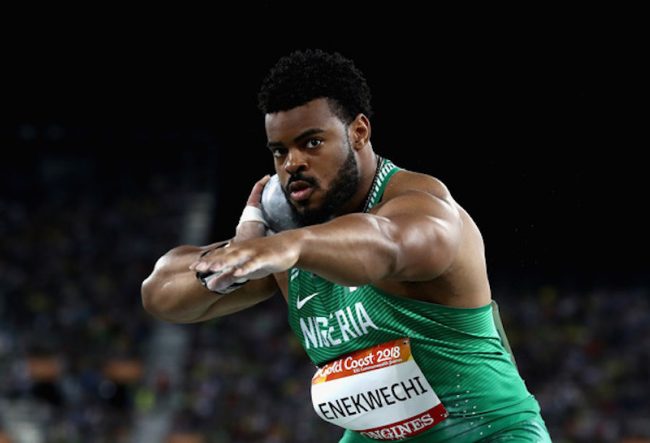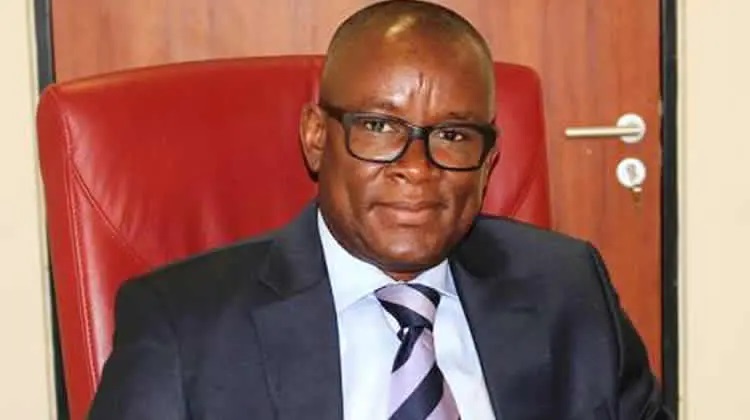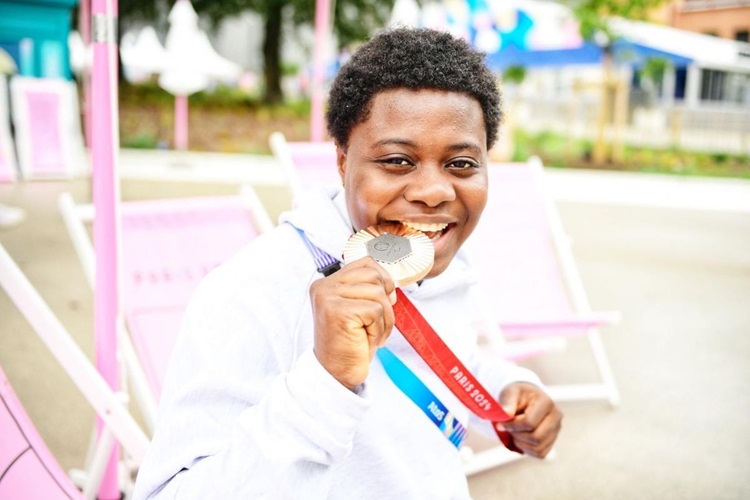September 15, (THEWILL) – Nigerian sports presents a striking contrast between the achievements of our Paralympians and the performance of Team Nigeria at the Olympic Games. A consistent pattern emerges: our para-athletes dominate their events and bring home impressive medal hauls, while our Olympic teams struggle to make an impact on the global stage.
At the recent 2024 Paris Olympics, Team Nigeria returned empty-handed, failing to win a single medal. In stark contrast, our Paralympians shone at the same venue, returning home with a modest but impressive two gold, three silver, and two bronze medals, while finishing 40th on the overall medals table. This is not an isolated incident; Nigeria’s Paralympians have a long history of success, amassing a total of 87 medals (42 gold, 21 silver, 23 bronze) since their debut at the 1992 Barcelona Games.
This paradox raises important questions: How have our Paralympians managed to excel consistently, even with limited resources, while our Olympic team continues to underperform? The answer lies in a combination of factors that have propelled our para-athletes to world record feats.
Nigeria’s Paralympians have demonstrated remarkable specialisation, focusing their efforts on specific disciplines where they can truly excel. Take the case of Folashade Oluwafemiayo, the para-powerlifter who set a world record by lifting an astounding 166 kg, becoming the first para-athlete in history to achieve this feat. Similarly, Eniola Mariam Bolaji, an 18-year-old badminton player, made history by winning Nigeria’s first-ever badminton medal at the Paralympics or Olympics. This laser-sharp focus on events where their key strengths lie has allowed our para-athletes to push the boundaries of their abilities and dominate their respective events.
The determination of Nigeria’s Paralympians is truly inspiring. Despite facing immense challenges, including limited resources and societal stigma, these athletes have refused to be defined by their disabilities. Instead, they have channelled their energy into training, pushing their bodies and minds to the limit in pursuit of glory. Their triumphs serve as a powerful testament to the human spirit and the transformative power of sport.
The Paralympians have benefited from a level of international support that has eluded their Olympic counterparts. Organisations like the International Paralympic Committee (IPC) and various global partners have invested in the development of para-sports, providing the necessary funding, equipment, and training resources to help these athletes reach their full potential. This support has been crucial in levelling the playing field and enabling Nigeria’s Paralympians to compete effectively on the global stage.
In contrast, the challenges facing Team Nigeria at the Olympics are multifaceted. The lack of focused specialisation in training programmes often results in athletes spreading themselves too thin across various disciplines. This diffusion of effort can lead to underperformance in competitions where peak performance in an area of one’s key advantage is essential.
Moreover, systemic issues within sports governance in Nigeria, including inadequate funding, poor infrastructure, and inconsistent coaching, have stifled the potential of our Olympians. While there is no shortage of talent, the lack of structured support and development pathways has hampered their ability to compete effectively.
To replicate the successes of our Paralympians in the Olympic arena, a strategic overhaul is necessary. Establishing specialised training programmes would allow athletes to concentrate on specific sports, fostering depth in skill development and enhancing competitive performance. Developing robust support structures that include funding, access to world-class facilities, and expert coaching is crucial. Partnerships with international sporting organisations could provide valuable resources and insights.
Implementing programmes that focus on mental toughness, drawing from the experiences of Paralympians, would help athletes navigate the pressures of competition and adversity. Encouraging corporate sponsorship and government funding for Olympic sports through incentive schemes is essential. A well-funded sports ecosystem will ensure that athletes receive the best possible training and support.
Investing in grassroots initiatives to identify and nurture talent from a young age is vital as the historic victory of 18-year-old Bolaji in badminton demonstrates. Engaging communities in sports can build a wider base of support and create pathways for future Olympians.
The future of Nigerian sports hinges on our ability to learn from the successes of our Paralympians. By adopting a more structured and supportive approach to Olympic training, we can harness the same determination that has brought glory to our Paralympians.
It is essential to spark a conversation about the reforms needed to elevate our athletes on the global stage. The potential is there; we must channel it effectively. Nigeria’s time to shine at the Olympics is not just a dream—it can be our reality with the right investment and commitment.
To achieve this, we must address the systemic issues that have hindered our Olympic success. This includes improving sports infrastructure across the country, enhancing the quality of coaching and sports science support, and creating a more transparent and accountable sports administration.
Furthermore, we need to foster a culture that values and supports athletes throughout their careers. This means providing better education and career transition programs for athletes, ensuring they have a stable foundation for life after sports.
We must also leverage technology and data analytics to improve athlete performance and identify areas for improvement. By embracing modern training methods and performance analysis tools, we can give our athletes a competitive edge at continental and international meets.
Building stronger partnerships between sports federations, educational institutions, and the private sector is crucial. These collaborations can lead to better resource allocation, improved facilities, and more opportunities for athletes to compete at the highest levels.
Changing the narrative around Nigerian sports is essential. Instead of focusing solely on medal counts, we should celebrate the journey of our athletes, their personal growth, and the positive impact they have on their communities. This shift in perspective can inspire more young Nigerians to pursue sports and create a more supportive environment for all athletes.
The contrast between our Paralympic and Olympic performances should serve not as a point of frustration, but as a catalyst for change. We have proven that Nigerian athletes can compete, break records, and win at the highest levels of international sport. Now, it is time to apply the lessons learned from our Paralympic success to transform our entire sports ecosystem.
The road ahead may be challenging, but the potential rewards are immense. By investing in our athletes, reforming our sports institutions, and fostering a culture of excellence, we can usher in a new era of Nigerian sports dominance.
Jude Obafemi is a versatile senior Correspondent at THEWILL Newspapers, excelling in sourcing, researching, and delivering sports news stories for both print and digital publications.






